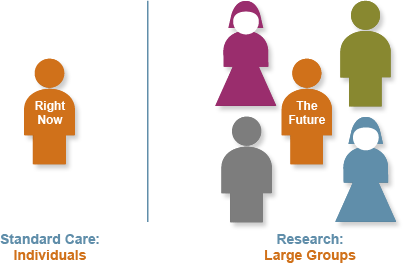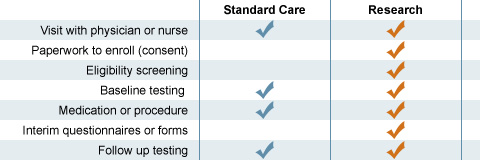Research Versus Care
"...sometimes I forget that I'm on a study because everything's so routine: I take my medicine in the morning, I take my medicine at night."
Bianca, child in kidney disease study
Bianca, child in kidney disease study
Research is different than care
- The researcher and your healthcare giver can be the same person.
- The setting may be your regular clinic.
- The treatments may seem the same.
Research is done to help find out if a treatment or procedure is good for a large group of people with a certain disease or condition. Research helps to answer questions for the future health of those populations. Standard medical care, however, focuses on individual needs in the present.

- Will I see different doctors and nurses for the study?
- Will I go to a different hospital or clinic for the study?
- Will the doctors and nurses ask me a lot more questions about my child's condition?
- Will there be more paperwork or additional tests when we are in the study?
- Will there be more rules and deadlines in the study?
Here is an example of how some things in a clinical study are the same as in regular care, while some are different.

"...if it does not work for my child, it might be able to work for another child and somewhere down the line...by me doing this clinical study today..."
Sharda, mother of child in kidney disease study
Sharda, mother of child in kidney disease study
 Previous
Previous




